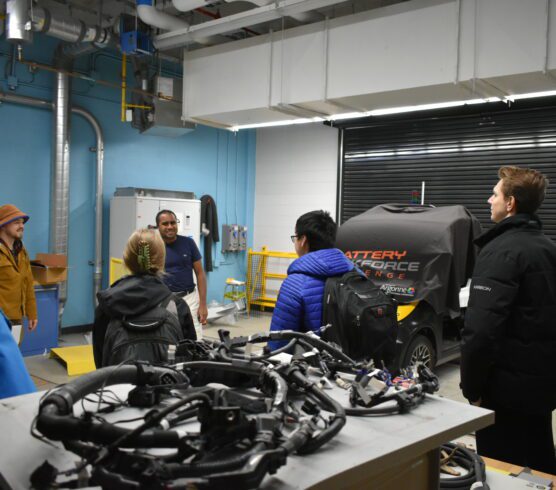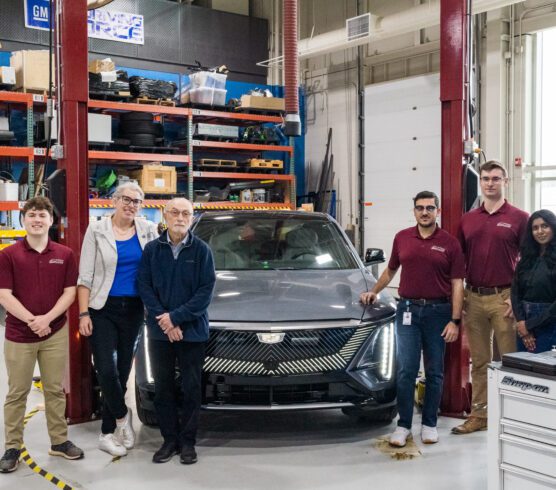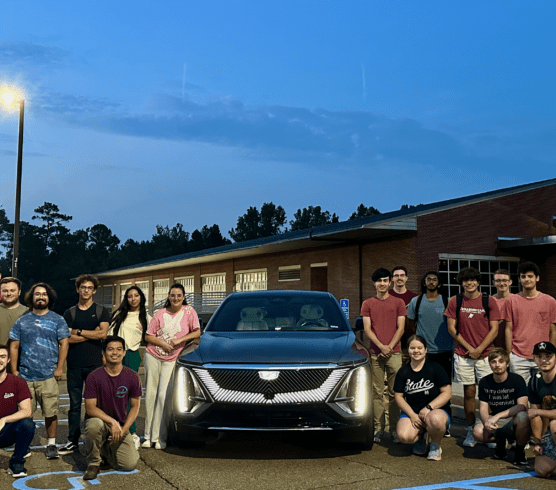Written by: Skye Myers, Rachel Abbott, and Marcus Cabibbo
The Embry-Riddle/Bethune-Cookman team has many beloved Faculty Advisors to assist the students in all areas of the competition. Dr. Patrick Currier is the team’s lead faculty advisor, Dr. Barbara Chaparro is one of the HMI/UX advisors, and Dr. Juan Calderon is the main CAVS faculty advisor with the help of Professor Roy Savoca who specializes in robotics. The faculty advisors greatly help the team and are well respected within their careers.
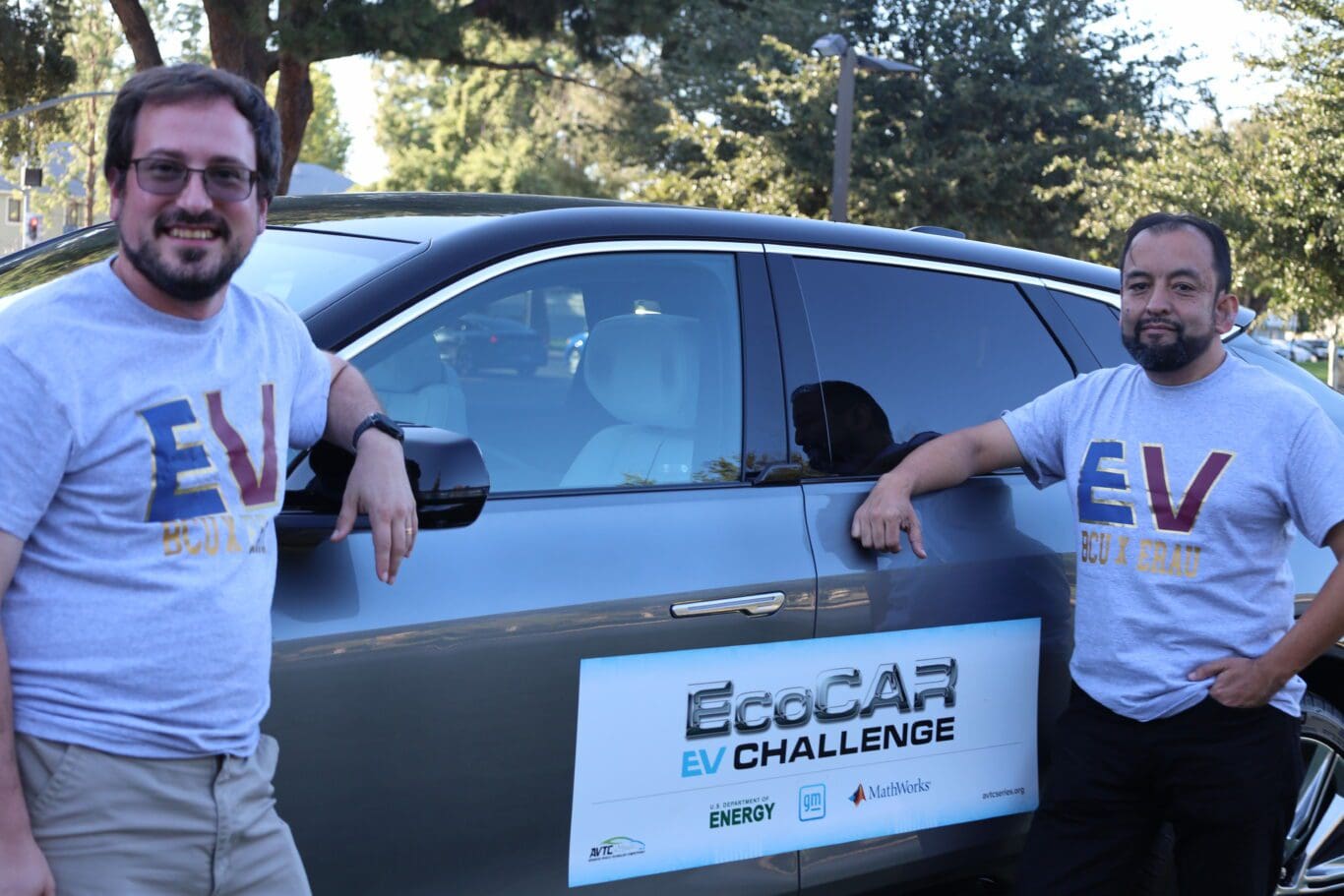

Dr. Patrick Currier came to ERAU in 2011 after finishing his Ph.D. at Virginia Tech and is currently a Professor and Interim Chair of Mechanical Engineering. His main research areas are autonomous systems and hybrid vehicles (air, sea, and ground). He has participated in a wide variety of student competition projects including Baja SAE, IGVC, SUAS, IARC, Roboboat, Robosub, RobotX, and two DARPA Grand Challenges. He took over as the lead advisor for EcoCAR 2 in the final year and has continued to serve through EcoCAR 3, EcoCAR Mobility Challenge, and EcoCAR EV Challenge. During his time as lead faculty advisor he has served as a member of the Faculty Advisory Board (FAB) and has received
Dr. Barbara Chaparro is one of the team’s HMI/UX advisors. After working in the software industry for four years, she graduated with her Ph.D. in Experimental Psychology/Human Factors from Texas Tech University. Dr. Chaparro then moved to Wichita State University (WSU) where she established an applied User eXperience research laboratory to train students for work in the industry. After almost 20 years at WSU, she moved to the ERAU Human Factors department where she has been with the school for over 5 years now! During her career, she was a wonderful mentor to over 25 Ph.D. students in my career along with many MS and undergraduates.
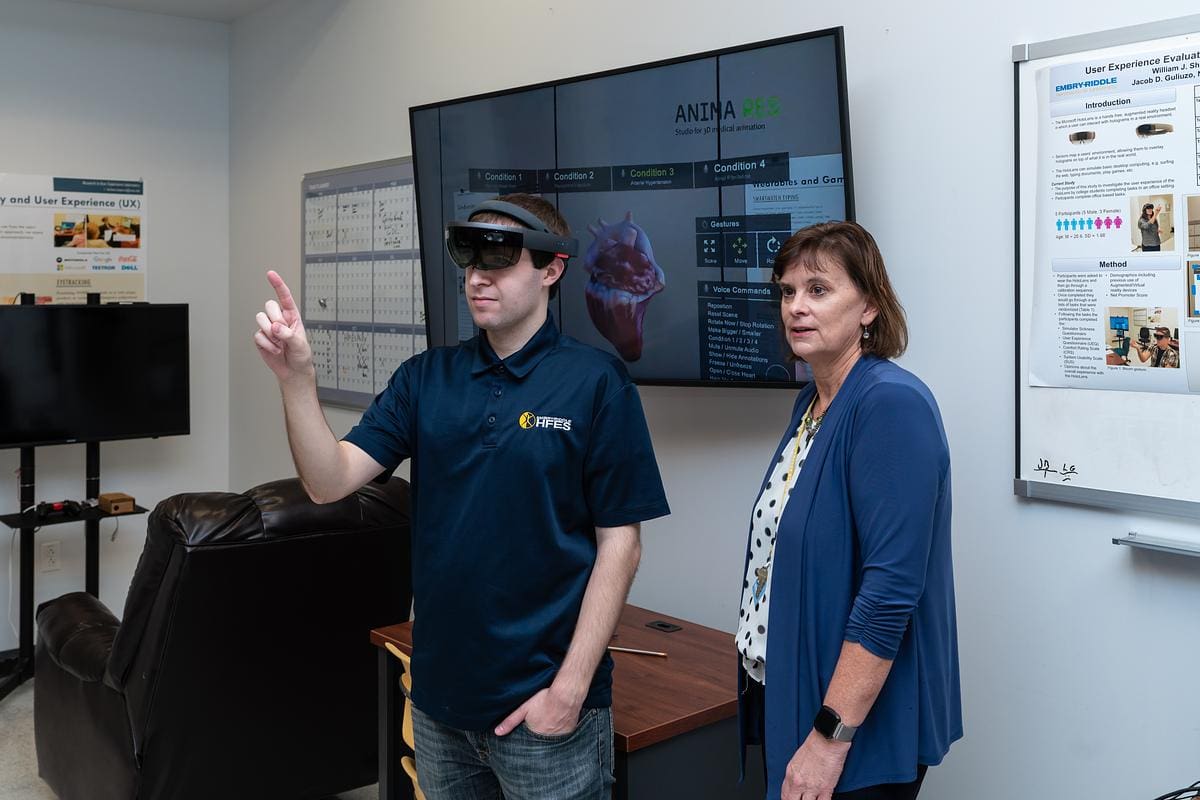

Dr. Chaparro directs ERAU Research in the User eXperience lab (RUX) where they investigate the user experience and usability of software, products, and processes through usability testing, heuristic evaluation, and qualitative and quantitative behavioral research. They also examine the user experience of the latest technologies (i.e., augmented and mixed reality) as to how they contribute to workplace productivity and overall quality of life.
She is co-supervising the HMI/UX team within the ERAU/BCU EcoCAR Team. The HMI/UX team’s emphasis this year is to understand how they can use human factors principles and methods to support “inclusive design” and positive user experience in future EVs. This involves thinking through a diversity of ways for drivers to take advantage of EV safety features and displays in ways that enhance performance and driver satisfaction across a wide range of individuals.
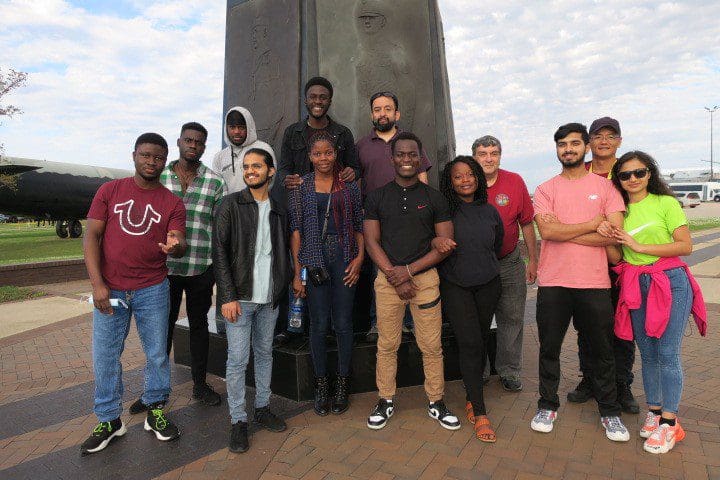

Dr. Juan Calderon is a Faculty Advisor for Bethune-Cookman University, where he is an Assistant Professor in Electrical Engineering. When he was a child, he had two dreams: to be a scientist and create robots that help him in daily life, and to be a rockstar. When he grew up, he forgot about his childhood dreams, yet, one day, while reviewing a photo album with his mom, he discovered that, on some level, he had achieved both without consciously trying. Dr. Calderon was born and raised in La Mesa, a town near Bogota, Colombia. When he was nine years old, his father decided to move to the city so his son would have the opportunity to further his education. Initially, his father created his study plan, which is why he attended Santo Tomas University to study Electronic Engineering after finishing high school.
Three months after graduation, his former university offered him an assistant professor position because of his VHDL knowledge. He utilized this opportunity to obtain a master’s degree in Electrical and Computer Engineering at Los Andes University. At the same time, he created a robotics team at Santo Tomas University that participated in the Colombian IEEE Robotics Contest and won five times. They also participated in and were four-time consecutive champions of the LARC-IEEE (IEEE Latin American Robotics Contest). During their last championship, one of the LARC directors advised him to participate in another worldwide robotics event: RoboCup. Dr. Calderon had been following RoboCup for several years and dreamed of one day being able to qualify and participate in the robot soccer world cup (RoboCup) but wasn’t confident with his level of experience for that. Months later, two students from the robotics team convinced him to create a robot soccer team and participate in the RoboCup Small Size league. In 2010, they participated in the Small Size league RoboCup-Latin American qualifiers, finishing runner-up, and were then sponsored by the Santo Tomas University to participate in the World event. In 2011, for the first time, a robot soccer team represented Colombia in the RoboCup in Istanbul-Turkey. During the 2011 championship, Dr. Calderon received the invitation to start doctoral studies at USF (University of South Florida) from one of the directors of the RoboCup Small Size League.
In 2012, he began his Ph.D. studies at USF but continued leading the robot soccer team at Santo Tomas University called STox’s. In 2015, they won fourth place in the world championship in Hefei-China. A robotics team in world championships has been the best achievement so far; to him, this is the most memorable because it was achieved thanks to students’ work, who eventually became professionals and friends. In 2016 he was recruited by the Intel Corp machine vision team, where he worked as a Robotics Engineer developing robots and working with depth perception cameras. In 2017 he got his Ph.D. degree, and given some personal issues, he decided to return to Florida and started working at Bethune Cookman University. He has been working at B-CU ever since as an assistant professor and leader of the Mobile Robotics and Intelligent Systems Lab. In the fall of 2021, he received an email from Professor Patrick Currier from ERAU (Embry Riddle Aeronautical University) inviting him to participate in a partnership team at EcoCAR EV 2022-2026. Today, he is working with students and professors from B-CU and ERAU to develop their semi-autonomous EV car for the EcoCAR EV Challenge 2022-2026.
“I realized that participating in the EcoCAR EV Challenge as a faculty advisor will help me fulfill one of my passions: to transfer some of my knowledge to eager students and continuously inspire them to learn every day and accomplish great things.”- Dr. Juan Calderon
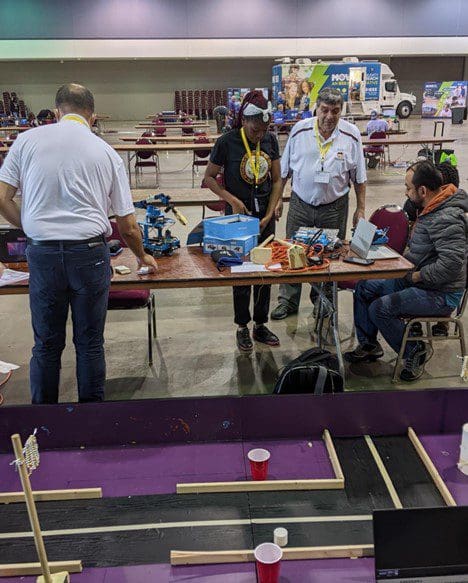

Professor Roy Savoca is another one of the Faculty Advisors from Bethune-Cookman University, where he is an Adjunct Professor of Computer Science and Information Technology Management. In addition to EcoCAR EV Challenge, he is also a Faculty Advisor for the American Airlines HBCU Hackathon and the IEEE Robotics Club.
Professor Savoca is from Brooklyn, New York, and attended MSGR Farrell High School prior to earning his BS in Business Management from St. John’s University (NY). He then went on to earn his MBA in Computer Technology from City University of New York and has experience with Robotics, Artificial Intelligence, Machine Learning, Flying, and Drone Technologies. He has a pilot’s license, flies for the US Coast Guard, and enjoys cooking as well as both water and snow skiing. Professor Savoca specializes in creating innovative information technology solutions aimed at achieving business goals & objectives. His extensive consulting and operations experience spans planning and managing large-scale projects, process engineering, Health Information Technology, Sarbanes-Oxley compliance, fraud detection and compliance monitoring, performance evaluation and tuning, business analysis and functional requirements definition, user interfaces, and architecture design (new hardware, software, network technology assessment and integration).
Over the years, he has worked with various industries including customer care, telecommunications, financial services, and health care. He has served on steering committees to determine the direction of the financial industry and recently received a Certificate from Carnegie Mellon in Health Information Technology; he also advises several healthcare providers on the use of office automation and the internet to improve efficiency and reduce cost. In the future, he hopes to be a part of any work that involves using new and emerging technology to enhance business, safety, and life. Professor Savoca has a philosophy that he has used to overcome many different emergencies in the areas of flying, economics, social circumstances, and life in general:
“Concentrate on completing the tasks and you will complete the whole project. If you look at the whole project, it can easily overwhelm you.”
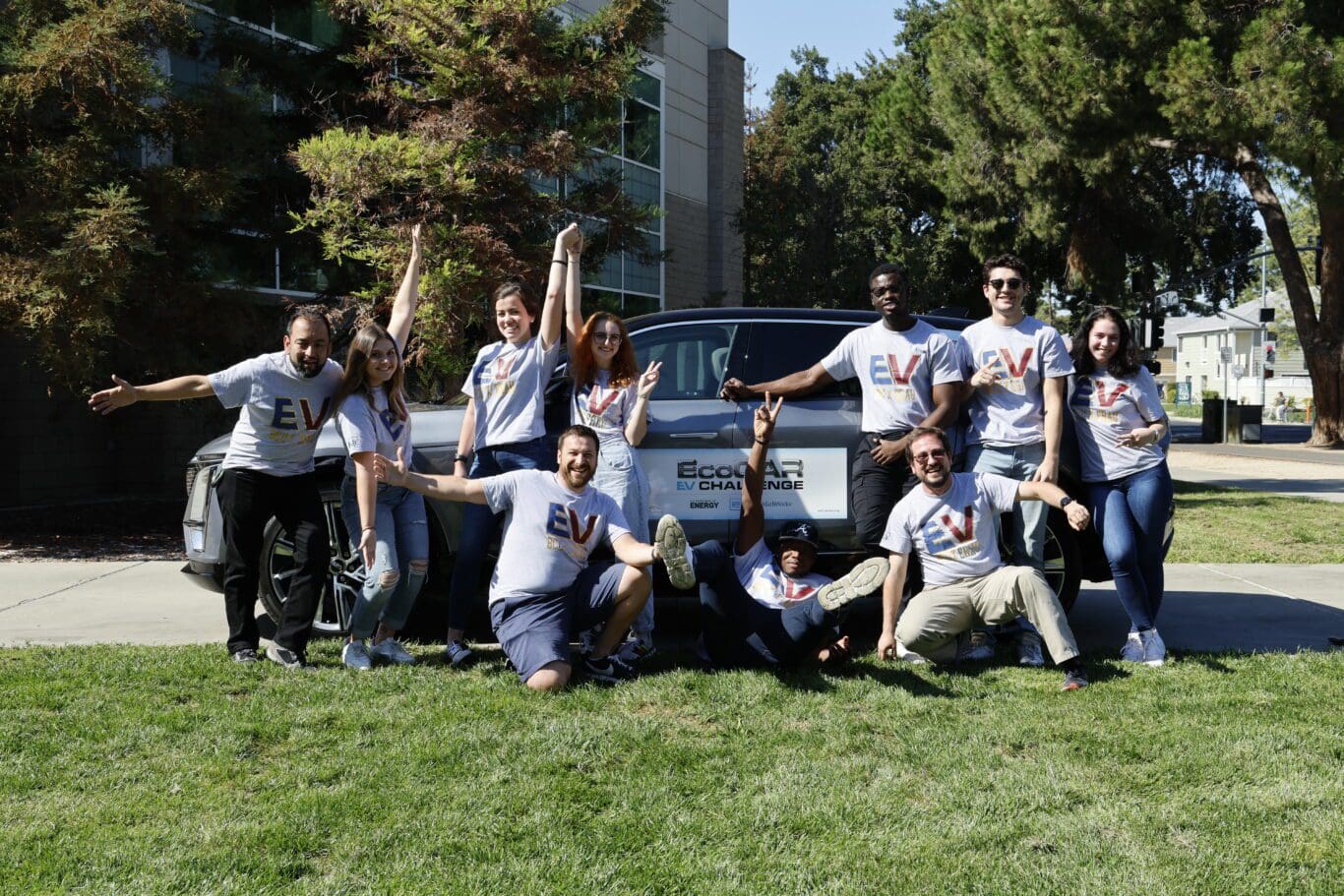

The Embry-Riddle and Bethune-Cookman faculty advisors are an integral part of the team and its success. Their knowledge, mentorship, and dedication to the students allows this competition to develop highly skilled and highly motivated professionals. Every student who joins EcoCAR gets to work with these professors and always ends up learning more than they could possibly imagine. Whether it be learning about the terrorizing effect of donuts and round pastries on test days, the problems that can occur from keeping flash drives near peanut butter, or stories of everything learned, experienced, and overcome during past competitions. It is truly a pleasure and a privilege to have these academics as our advisors and we are all grateful for their commitment to our team.
